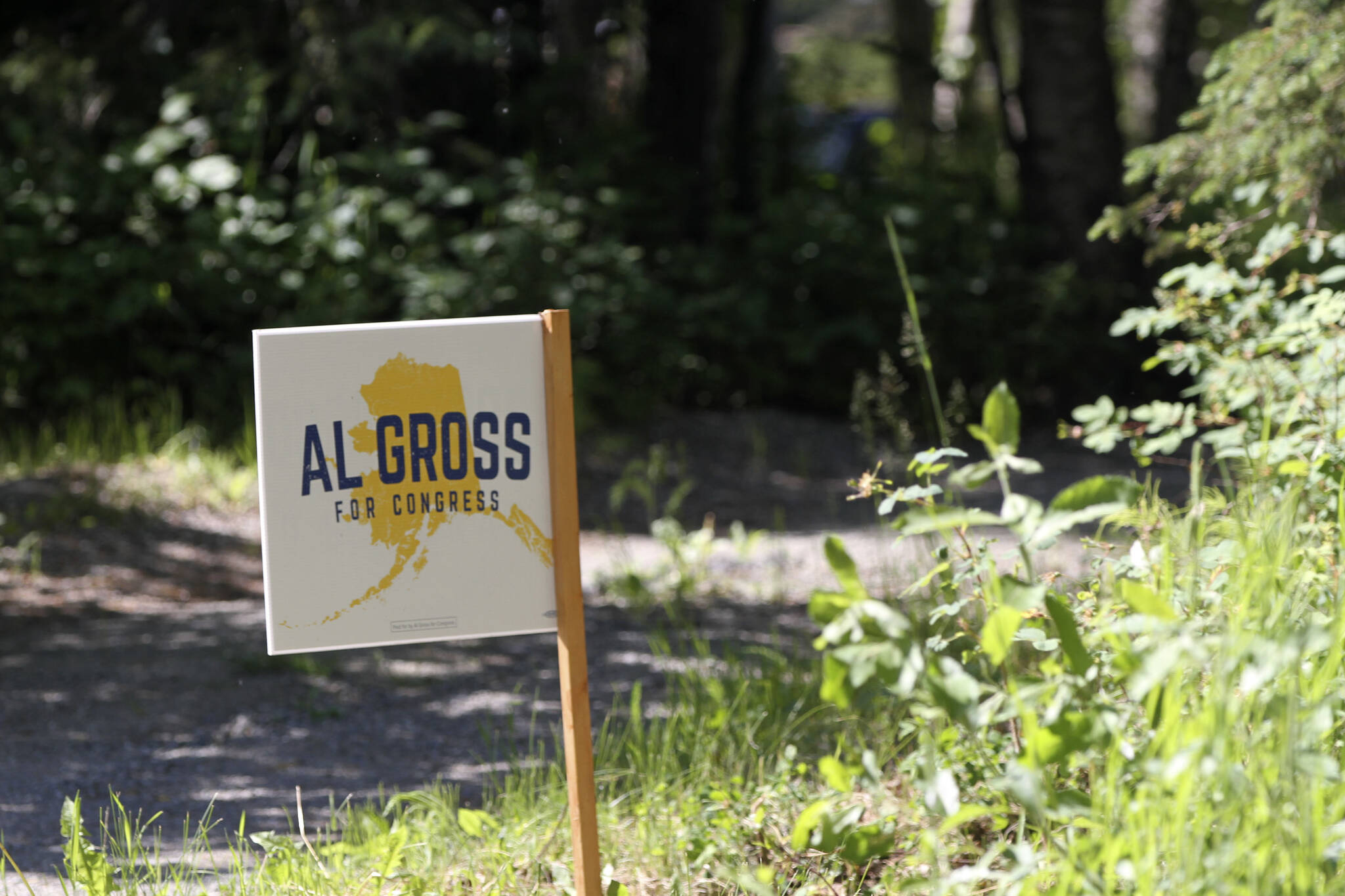JUNEAU — A state court judge ruled Friday that Alaska elections officials do not need to put the fifth-place finisher in this month’s U.S. House special primary on the upcoming special election ballot in place of a candidate who withdrew.
Superior Court Judge William Morse agreed with the Alaska Division of Elections’ reading of the law, after previously saying he was tentatively inclined to rule that way. His decision was appealed to the Alaska Supreme Court.
Division director Gail Fenumiai had said that because independent Al Gross withdrew less than 64 days before the scheduled Aug. 16 special election, state law did not permit the division to put the fifth-place candidate, Republican Tara Sweeney, on the ballot in his place.
Gross abruptly withdrew his candidacy, with little explanation, earlier this week.
A lawsuit filed by three registered voters Thursday said the division misinterpreted the law and that the timeline cited by the division did not apply to special elections. The lawsuit sought to have Sweeney placed on the special election ballot.
An attorney for the plaintiffs did not respond to an email seeking comment.
Forty-eight candidates ran in the June 11 special primary for Alaska’s only U.S. House seat, which was left vacant by the death of Republican Rep. Don Young in March. Young held the seat for 49 years.
Gross was third in the special primary — behind Republicans Sarah Palin and Nick Begich and ahead of Democrat Mary Peltola. He was poised to advance to the special election as one of the top four vote-getters under a new open primary system.
Fenumiai said Gross withdrew on Tuesday and that the division would remove his name from the special election ballot. That would mean the special election ballot would include three candidates and a space for voters to rank a write-in candidate, she said in an affidavit.
The special primary was the first election held under a system approved by Alaska voters that ends party primaries and institutes ranked-choice voting in general elections.
While the division is “sympathetic to the public expectation” that under the new system four candidates would advance, “it lacks the discretion to relax an unambiguous statutory deadline to effectuate this goal,” attorneys for the Department of Law, representing the division, said in court filings.
Morse in his written order said the timeline under which a substitution could occur in this situation “could hardly be briefer.” But, he wrote, “that is the period set by statute and the one the Division must apply.”
Sweeney’s campaign did not sue over the issue. But Sweeney has said that she believed she should be moved into fourth place and that voters should have four candidates to choose from.
In a statement, she criticized Begich, whose campaign agreed with the division’s interpretation and intervened in the case. She said Begich sought legal action “to block the advancement of my candidacy to limit the choices for Alaskans.” She said he is “threatened” by her candidacy.
Begich campaign manager Truman Reed labeled as “ridiculous” the assertion that Begich is trying to limit choices. Reed in an email said there were 48 candidates in the special primary, “seemingly enough. Three choices remain. Our interest is solely protecting the public’s confidence in the electoral system. From our perspective, the law is clear.”
The winner of the special election will serve the remainder of Young’s term. An August regular primary and November general election will determine who will serve a new, two-year term, starting in January.
The lawsuit was filed on behalf of plaintiffs identified as registered voters Sunny Guerin, Vera Lincoln and Elizabeth Asisaun Toovak.
Fenumiai has said that a final court decision is needed by Tuesday to print ballots in time to meet deadlines and to keep the special election on schedule.
The Department of Law, in a statement Friday, said the division appreciated the speedy ruling. “If the Plaintiffs appeal, we will be ready to very quickly defend the ruling before the Alaska Supreme Court so that ballots can be printed on schedule,” the statement says.

